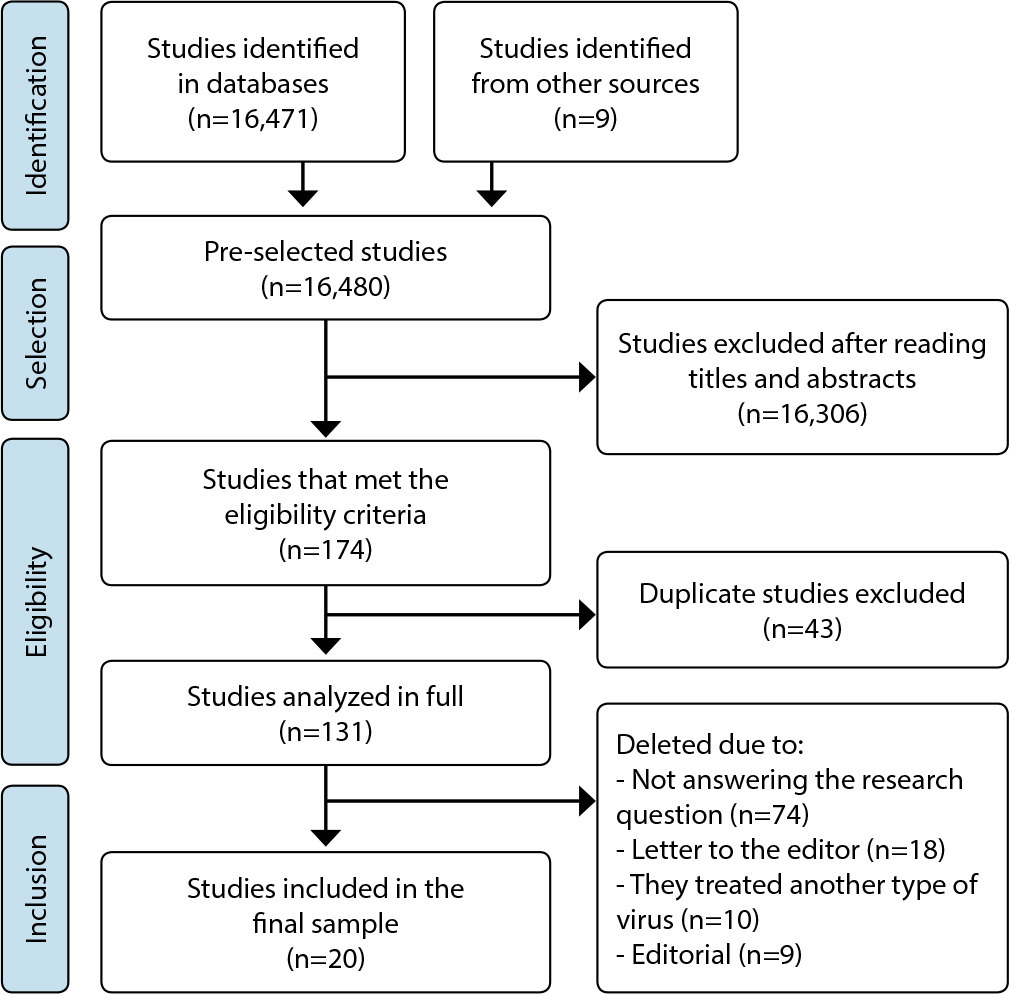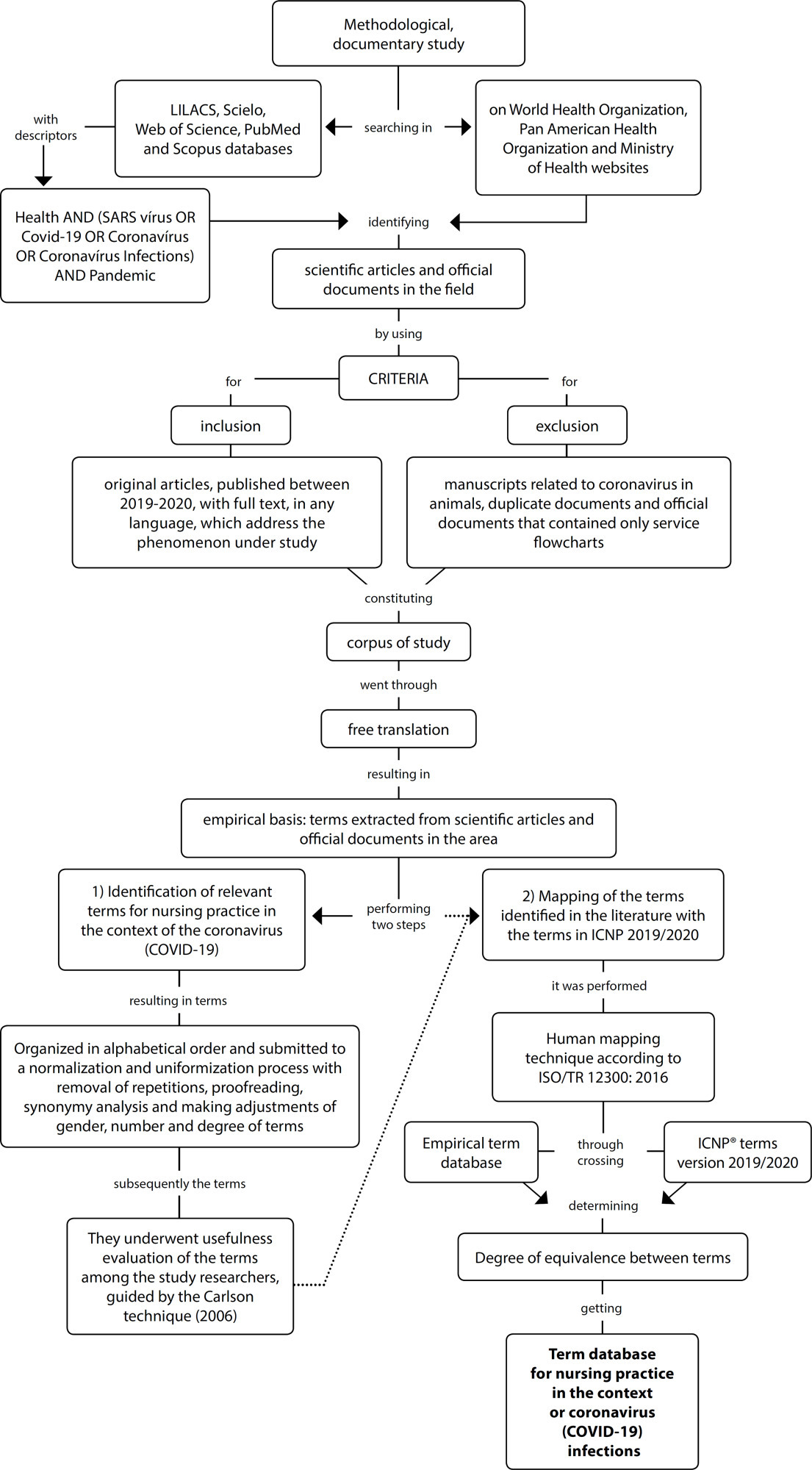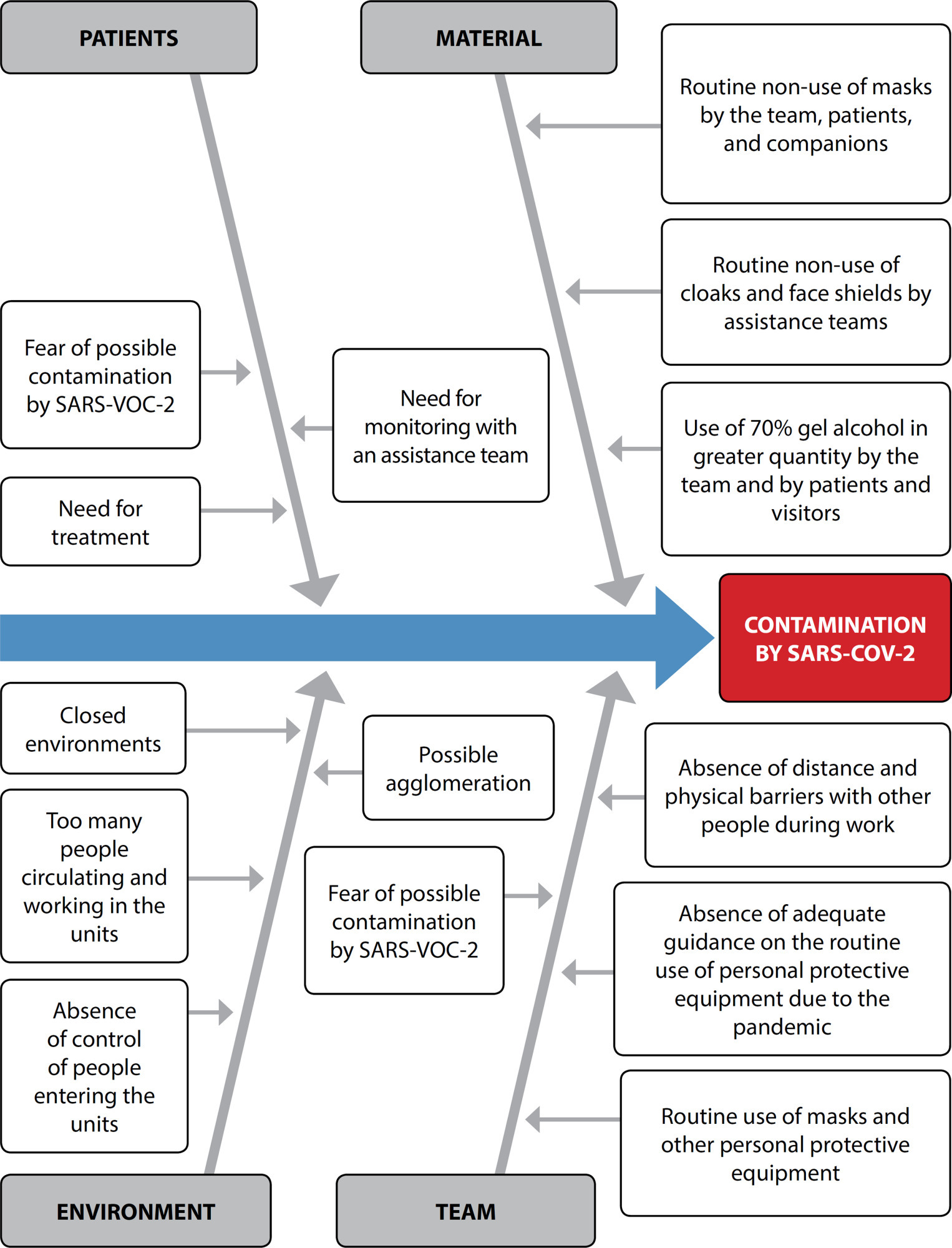-
REFLECTIVE
Legislation and quality of nursing education in the context of the COVID-19 pandemic
Revista Brasileira de Enfermagem. 2022;75(3):e20210825
09-23-2022
Resumo
REFLECTIVELegislation and quality of nursing education in the context of the COVID-19 pandemic
Revista Brasileira de Enfermagem. 2022;75(3):e20210825
09-23-2022DOI 10.1590/0034-7167-2021-0825
Visualizações0Ver maisABSTRACT
Objectives:
to reflect on the governmental normative acts issued for higher education during the COVID-19 pandemic and on the repercussions of these acts on the quality of nursing education in Brazil.
Methods:
this is a reflection on the repercussions for the quality of nursing education, based on the normative acts applied to higher education, enacted from March to December 2020, available on the Ministry of Education website and in the current literature on the subject anchored in the National Curriculum Guidelines for the Undergraduate Nursing Course.
Results:
educational legislation, in the context of the pandemic, distanced education from the world of work, as well as from the quality of training established in the guidelines.
Final Considerations:
remote teaching in nursing makes it difficult to train professionals with the capacity to effectively teach and learn in the real world of care and health promotion in the Unified Health System.
-
REVIEW
Onco-hematological patient care in times of COVID-19: a scoping review
Revista Brasileira de Enfermagem. 2022;75(Suppl 2):e20210892
09-19-2022
Resumo
REVIEWOnco-hematological patient care in times of COVID-19: a scoping review
Revista Brasileira de Enfermagem. 2022;75(Suppl 2):e20210892
09-19-2022DOI 10.1590/0034-7167-2021-0892
Visualizações0Ver maisABSTRACT
Objective:
to identify and map health care aimed at onco-hematological patients in times of Coronavirus 2019.
Methods:
this is a scoping review, anchored in the Joanna Briggs Institute theoretical framework, registered in the Open Science Framework, with searches carried out in June 2021, through searches in the databases.
Results:
a final sample consisting of 20 articles was obtained, with emphasis on general care, treatment and stem cell donation. The most reported care was the use of telemedicine, screening for Coronavirus Disease 2019, compliance with prevention practices and, in case of infection, postponing procedures.
Conclusions:
the study gathered the main evidence on care aimed at treating these patients in times of a pandemic. Such measures help in the clinical management with the objective of proceeding with treatment amidst the injuries caused, thus minimizing possible complications.

-
ORIGINAL ARTICLE
Brazilian overview of nurses’ training during the COVID-19 pandemic
Revista Brasileira de Enfermagem. 2022;75(6):e20210923
07-29-2022
Resumo
ORIGINAL ARTICLEBrazilian overview of nurses’ training during the COVID-19 pandemic
Revista Brasileira de Enfermagem. 2022;75(6):e20210923
07-29-2022DOI 10.1590/0034-7167-2021-0923
Visualizações0Ver maisABSTRACT
Objective:
To present the Brazilian panorama of the training of nurses during the COVID-19 pandemic.
Method:
a cross-sectional study, carried out with 335 coordinators of undergraduate courses in Nursing and online data collection, between November 2020 and March 2021.
Results:
All Brazilian states were represented. Of Higher Education Institutions, 52.5% adopted remote learning within 10 days after determining social distancing and 23% after 100 days; 73.4% kept the students in a mandatory curricular internship. Practical classes had a reduction in the number of students per group (46.0%). Most faculty and students were contaminated by SARS-CoV-2 and showed worsening in mental health.
Conclusions:
The study identified heterogeneity in the resumption of activities, through remote teaching, which mostly occurred synchronously. There was a resumption of curricular internships and practical classes in health services, with a limitation on the number of students per field.
-
ORIGINAL ARTICLE
Neither angels nor heroes: nurse speeches during the COVID-19 pandemic from a Foucauldian perspective
Revista Brasileira de Enfermagem. 2022;75(Suppl 1):e20201329
09-29-2022
Resumo
ORIGINAL ARTICLENeither angels nor heroes: nurse speeches during the COVID-19 pandemic from a Foucauldian perspective
Revista Brasileira de Enfermagem. 2022;75(Suppl 1):e20201329
09-29-2022DOI 10.1590/0034-7167-2020-1329
Visualizações0Ver maisABSTRACT
Objective:
to analyze the processes of meaning production, based on the speeches of nursing professionals, about how they feel about the titles of “angels and heroes” given by society during the pandemic of COVID-19.
Methods:
a qualitative, documentary research. Data was collected in October and November 2020 and analyzed from the perspective of the Discourse Analysis proposed by Michel Foucault.
Results:
they were organized into two thematic categories: “Angels and heroes? The (not) heroic reality of nursing during the pandemic” and “The search for recognition of the professional work of nursing: between what is said and what is not said”.
Final considerations:
the nurses’ speeches enunciate the search for decent conditions for the execution of care, fair wages, and recognition of the professional work by society.
-
REFLECTIVE
Health care of deaf persons during coronavirus pandemics
Revista Brasileira de Enfermagem. 2022;75(Suppl 1):e20201036
09-29-2022
Resumo
REFLECTIVEHealth care of deaf persons during coronavirus pandemics
Revista Brasileira de Enfermagem. 2022;75(Suppl 1):e20201036
09-29-2022DOI 10.1590/0034-7167-2020-1036
Visualizações0Ver maisABSTRACT
Objective:
To reflect about the barriers experienced by the deaf population during the COVID-19 pandemic, the proposals to overcome communication barriers in health care and the role of public policies in effecting the social inclusion of deaf people.
Methods:
Reflection based on studies on health care for deaf people, the COVID-19 pandemic and public accessibility policies.
Results:
The global crisis of COVID-19 has deepened pre-existing inequalities in the world, in addition to highlighting the vulnerability of people with disabilities, including deaf. Government, institutional and social initiatives to mitigate difficulties in communicating to deaf people have been made, but they are still insufficient to guarantee protection for them in this pandemic and full inclusion in health care.
Final considerations:
Social inclusion, supported by law, and the linguistic accessibility of deaf people still need to generate broad and concrete actions so that deaf people can enjoy their rights as citizens.
-
REFLECTIVE
Florence Nightingale: Legacy, present and perspectives in COVID-19 pandemic times
Revista Brasileira de Enfermagem. 2021;74(suppl 1):e20201306
07-12-2021
Resumo
REFLECTIVEFlorence Nightingale: Legacy, present and perspectives in COVID-19 pandemic times
Revista Brasileira de Enfermagem. 2021;74(suppl 1):e20201306
07-12-2021DOI 10.1590/0034-7167-2020-1306
Visualizações0Ver maisABSTRACT
Objective:
Reflect on the influence of Florence Nightingale’s teachings to face the COVID-19 pandemic and its repercussions for the future of the profession.
Methods:
Descriptive reflective study, carried out between May and July 2020, through narrative review on the theme and debates between the authors.
Results:
The findings are divided into two chapters, namely: Environmental Theory and the teachings of Florence Nightingale in the face of the COVID-19 pandemic; and Florence Nightingale: legacy, present and perspectives.
Final considerations:
Florence Nightingale’s studies with the Environmentalist Theory and her teachings as a nurse are still valid, even after almost two centuries since her prelude, and should continue to serve as a foundation for the consolidation of the nursing profession.
-
ARTIGO ORIGINAL
Term database for nursing practice in the context of coronavirus (COVID-19) infections
Revista Brasileira de Enfermagem. 2021;74(suppl 1):e20200703
05-21-2021
Resumo
ARTIGO ORIGINALTerm database for nursing practice in the context of coronavirus (COVID-19) infections
Revista Brasileira de Enfermagem. 2021;74(suppl 1):e20200703
05-21-2021DOI 10.1590/0034-7167-2020-0703
Visualizações0Ver maisABSTRACT
Objective:
to build a term database relevant to nursing practice in the context of COVID-19 infections.
Methods:
this is a methodological, documentary study, carried out from March to June 2020 at ICNP®/ Universidade Federal da Paraíba center, considered a reference for research and dissemination of ICNP® in Brazil. The findings were collected in databases and analyzed using the PorOnto tool, the consensus technique and the mapping of terms with ICNP®, version 2019/2020.
Results:
1,134 relevant terms were identified in literature. When submitted to the mapping technique with the terms of ICNP® Seven Axis Model, it resulted in 531 constant terms and 603 nonconstant terms in this classification.
Final considerations:
It is proven that nursing practice terms, even in a specific context, are present in the literature and are representative in ICNP®, which will enable the future development of a terminological subset in the context of coronavirus infections.

-
EXPERIENCE REPORT
Management of coping with the risks of COVID-19 in an onco-hematological outpatient clinic: an experience report
Revista Brasileira de Enfermagem. 2021;74(suppl 1):e20201080
05-21-2021
Resumo
EXPERIENCE REPORTManagement of coping with the risks of COVID-19 in an onco-hematological outpatient clinic: an experience report
Revista Brasileira de Enfermagem. 2021;74(suppl 1):e20201080
05-21-2021DOI 10.1590/0034-7167-2020-1080
Visualizações0Ver maisABSTRACT
Objective:
to describe the experience of a private outpatient network for hematology and oncology treatment in the adoption of management tools to face the risk of contamination by SARS-CoV-2.
Method:
an experience report on the use of a root cause analysis method to identify potential risks of contamination by COVID-19 among patients and employees. Through the risks identified through the Ishikawa Diagram, we built an action plan, linked to the 5W2H tool, for planning and decision-making implemented.
Results:
the number of attendances in person and people circulating in the units was reduced, protective distance measures and new protection barriers were fundamental to control the risks of spreading COVID-19 in patients and employees.
Final considerations:
the management tools served as a valuable tool in the construction of measures, making the measures in question more clearly and applicable.




